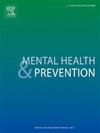Parental understanding of mental health in young children: The development and initial validation of the parental child mental health literacy questionnaire
IF 2.4
Q2 Medicine
引用次数: 0
Abstract
Aims
Parental understanding of mental health difficulties in young children is crucial for early intervention and support, yet child mental health is often misconceived and stigmatized. The Parental Child Mental Health Literacy Questionnaire (PCMHLQ) was developed to measure parents’ literacy of child mental health and piloted in a general community sample of parents in the UK.
Subjects and methods
The measure was developed in a three-stage process and piloted in 211 parents of children aged 4 – 11 years. Factor structure, convergent validity, and construct validity were assessed.
Results
The final 23-item version produced a five-factor model corresponding to (1) beliefs, (2) fear of stigma or shame, (3) help-seeking confidence, (4) recognition, and (5) knowledge related to young children's mental health. Four factors had acceptable to high internal reliability. Total PCMHLQ was associated with adult mental health literacy and physical health literacy scores. PCMHLQ scores were lower for parents with a child with mental health difficulties, parents with current mental health difficulties, fathers, and low-income parents. Non-White ethnic minority parents held more negative child mental health beliefs, but did not differ in other scales, and parents who had a history of mental health service access had higher recognition but lower help-seeking confidence.
Conclusion
This paper describes the first integrated measure of parental literacy in young children's mental health. Preliminary evidence suggests that the 23-item PCMHLQ has the potential to identify parents with low understanding and to inform tailored community-based interventions and public health initiatives.
父母对幼儿心理健康的理解:父母子女心理健康素养问卷的编制与初步验证
目的父母对幼儿心理健康困难的了解对于早期干预和支持至关重要,然而儿童心理健康往往被误解和污名化。父母子女心理健康素养调查问卷(PCMHLQ)是为了衡量父母对儿童心理健康的素养而开发的,并在英国的一般社区父母样本中进行了试点。研究对象和方法该措施分三个阶段制定,并在211名4至11岁儿童的父母中进行了试点。评估因子结构、收敛效度及构念效度。结果最终的23个条目版本产生了一个五因素模型,分别对应:(1)信念,(2)对污名或羞耻的恐惧,(3)寻求帮助的信心,(4)认知,(5)与幼儿心理健康相关的知识。4个因素具有较高的内部信度。PCMHLQ总分与成人心理健康素养和身体健康素养得分相关。有孩子有心理健康问题的父母、目前有心理健康问题的父母、父亲和低收入父母的PCMHLQ得分较低。非白人少数族裔父母对儿童心理健康的负面信念较多,但在其他量表上无差异;有过心理健康服务史的父母对儿童心理健康的认知较高,但求助信心较低。结论本文首次提出了父母素养在幼儿心理健康中的综合测量方法。初步证据表明,包含23个项目的PCMHLQ有可能识别了解程度较低的父母,并为有针对性的社区干预措施和公共卫生举措提供信息。
本文章由计算机程序翻译,如有差异,请以英文原文为准。
求助全文
约1分钟内获得全文
求助全文
来源期刊

Mental Health and Prevention
Medicine-Psychiatry and Mental Health
CiteScore
2.10
自引率
0.00%
发文量
22
审稿时长
24 days
 求助内容:
求助内容: 应助结果提醒方式:
应助结果提醒方式:


